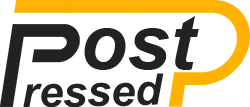In today’s rapidly changing healthcare landscape, the demand for skilled professionals in medical administration is on the rise. As technology continues to transform the industry, the need for individuals who can effectively manage medical offices, navigate complex healthcare systems, and ensure smooth operations has never been greater. This blog post explores the various aspects of medical administration training and how it can unlock a world of opportunities for career advancement.
The Growing Demand for Medical Administration Professionals
The healthcare industry is experiencing exponential growth, with an increasing number of people seeking medical services. As a result, there is a rising demand for professionals who specialize in medical administration. From small clinics to large hospitals, medical administrators play a vital role in ensuring the efficient functioning of healthcare facilities.
Medical administration professionals handle various responsibilities, including managing patient records, scheduling appointments, coordinating billing and insurance processes, and maintaining compliance with healthcare regulations. With the growing complexity of the healthcare system, professionals with strong administrative skills are in high demand.
The Benefits of Medical Administration Training
While hands-on experience is valuable, medical administration training provides a solid foundation of knowledge and skills needed to excel in the field. Training programs offer comprehensive courses that cover a wide range of topics, from medical terminology and coding to healthcare laws and regulations.
One of the key benefits of medical administration training is the acquisition of specialized skills that are directly applicable to the field. These skills include effective communication, organization, problem-solving, and attention to detail. Additionally, training programs often incorporate practical components, such as simulated work environments and real-world case studies, which allow participants to apply their knowledge and develop crucial skills.
Key Skills and Competencies Developed in Medical Administration Training
Medical administration training programs focus on developing a specific set of skills and competencies that are highly sought after in the industry. These skills include:
- Effective Communication: Medical administrators must be able to communicate clearly and professionally with patients, healthcare providers, and staff. Training programs emphasize interpersonal skills, active listening, and customer service techniques.
- Organizational Abilities: Managing patient records, scheduling appointments, and coordinating administrative tasks requires strong organizational skills. Training programs provide strategies for efficient time management, record-keeping, and multitasking.
- Knowledge of Healthcare Systems: Understanding the complexities of healthcare systems, insurance policies, and medical coding is crucial for medical administrators. Training programs cover topics related to healthcare regulations, medical billing, and electronic health records.
Unlocking Career Opportunities through Medical Administration Training
Medical administration training opens doors to various career opportunities within the healthcare industry. Graduates can find employment in medical offices, hospitals, clinics, nursing homes, and other healthcare facilities. Some of the career paths accessible through medical administration training include:
- Medical Office Manager: With experience and additional training, medical administrators can advance to managerial positions. As a medical office manager, professionals are responsible for overseeing the daily operations of a healthcare facility, managing staff, and ensuring compliance with regulations.
- Medical Secretary: Many medical administrators start their careers as medical secretaries or administrative assistants. In this role, they provide vital support to healthcare providers by managing patient records, scheduling appointments, and handling administrative tasks.
- Healthcare Administrator: With specialized training and advanced degrees, medical administrators can pursue careers in healthcare administration. Healthcare administrators work at higher levels, managing entire healthcare departments or organizations.
Finding the Right Medical Administration Training Program
Selecting the right training program is essential for a successful career in medical administration. When researching programs, key factors to consider include:
- Accreditation: Ensure that the training program is accredited by a reputable accrediting body. Accreditation ensures that the program meets recognized standards of quality and that your credentials will be respected in the job market.
- Curriculum: Review the program’s curriculum to ensure it covers essential topics and provides hands-on learning opportunities. Look for programs that offer a comprehensive and well-rounded education in medical administration.
- Hands-on Experience: Practical experience is invaluable in medical administration. Seek programs that offer opportunities for internships, externships, or simulated workplace environments to apply theoretical knowledge in a real-world setting.
Taking Action: How to Get Started on Medical Administration Training
To embark on a career in medical administration, follow these steps:
- Research Training Programs: Explore different medical administration training programs and gather information about their curriculum, accreditation, and hands-on learning opportunities.
- Assess Personal Goals: Consider your career aspirations and goals within the medical administration field. Determine what specific skills and knowledge you want to acquire through the training program.
- Apply to Training Programs: Once you have identified suitable programs, complete the application process, which typically includes submitting required documents, academic records, and any prerequisite requirements.
- Financial Considerations: Explore funding options, such as scholarships, grants, or employer reimbursement programs, to support your training. Additionally, inquire about flexible payment plans offered by training institutions.
- Begin Your Training: Once accepted into a program, immerse yourself in the learning experience. Take advantage of networking opportunities, engage in hands-on practice, and actively participate in coursework.

Conclusion
Medical administration training offers a pathway to career advancement in a rapidly growing field. The demand for skilled professionals in medical administration is steadily increasing, presenting numerous opportunities for individuals looking to enter or advance within the healthcare industry. By acquiring the necessary knowledge, skills, and credentials through training programs, individuals can unlock a fulfilling career in medical administration and contribute to the efficient and effective delivery of healthcare services.



